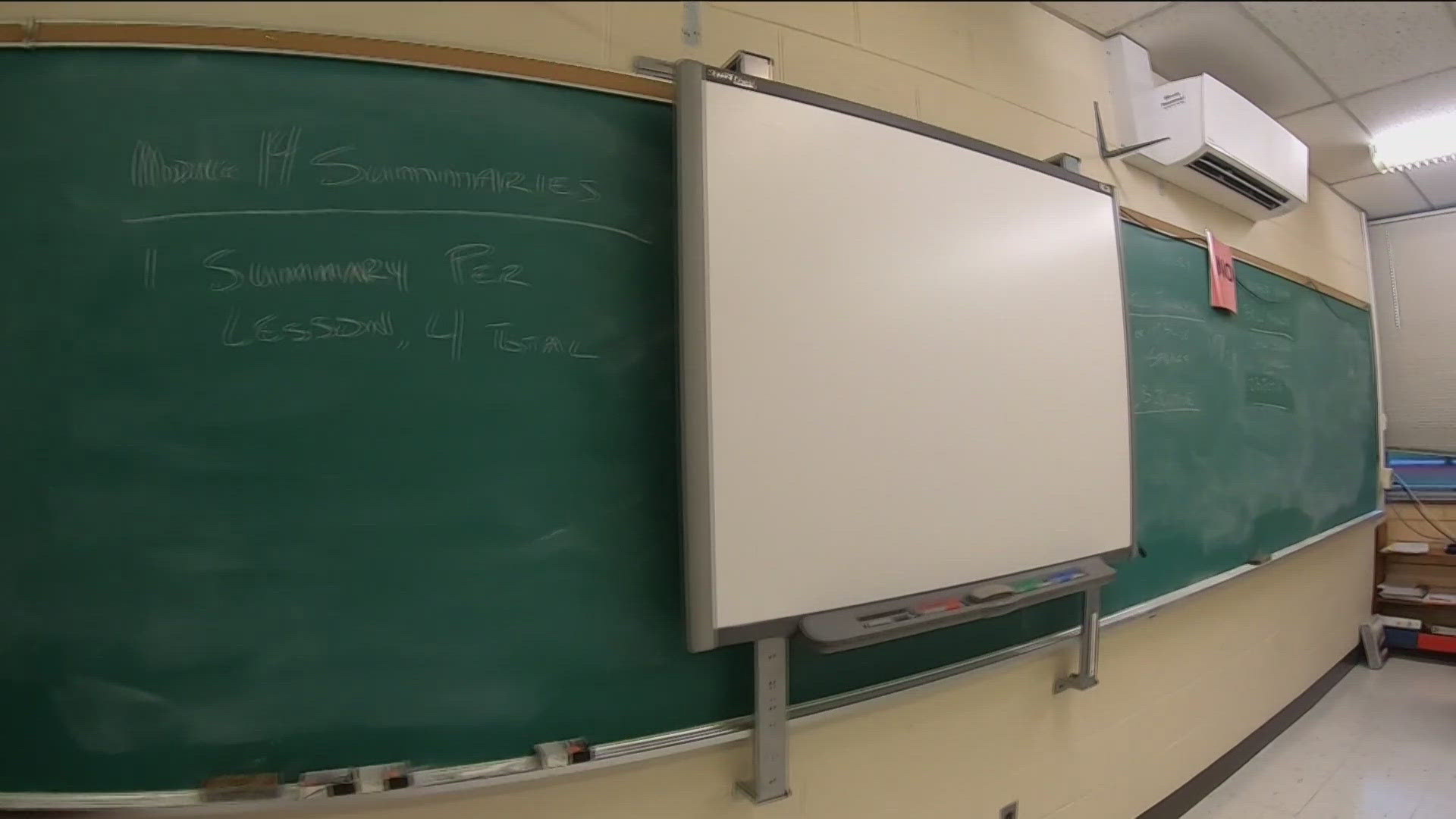TOLEDO, Ohio — As the start of the school year kicks off for many schools across the country, summer heat continues to have a lasting impact in some areas while going back to school.
Keeping schools cool during our warming climate has become a growing concern for climate experts as many cities experience extreme heat this week throughout the Midwest and south.
A recent study by independent scientists with Climate Central determined that since 1970, 95% of the U.S. has seen more demand for air conditioning inside buildings and schools.
But experts, like University of Arizona climate scientist and proud member of Science Moms Joellen Russell, say now is the time for a solution before the problem gets worse.
"One study found that a 1 degree-hotter school year is associated with a 1% reduction in learning that year based on test scores," Russell said. "But, air conditioning can offset heat related impacts to learning."
According to the National Integrated Heat Health Information System, children are among the most at risk to heat during the sizzling summer months and data shows that average temperatures have gone up in the continental U.S. since 1901.
Those hotter days can slow down learning, Russell said. Not only is it hotter during the day, but the summer season hits at both the end of the school year and the start of the next school year.
"While we used to just worry about you know, 'did we get the kids snow boots out in the winter?' Now it's a problem of, there is no protection that parents can send to school with the kids from heat, right?" Russell said. "It has to be built into the school; either the air-conditioning potential, or the insulating properties of the school and those are, unfortunately, expensive."
The National Weather Service says heat is the deadliest weather-related hazard in the U.S. To add to this, Russel says that could change the landscape for student-athletes.
"At those temperatures you're not going to be doing athletics and for little kids," Russell said. "We've had to do things in Tucson like solar panels on playgrounds, and the reason is that it provides shade and energy to help power the schools. But, you have to have the investment to be able to do that."
Russell says there are subsidies schools can apply for to improve cooling and safety, but admits these changes and renovations are expensive.
During extreme heat days both inside and outside the classroom, everyone has to play their part in decreasing the amount of carbon emissions that we have to deal with to reduce the likelihood of global warming continuing in the future.
MORE FROM WTOL 11 WEATHER:

